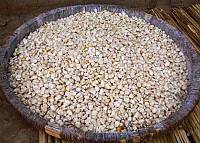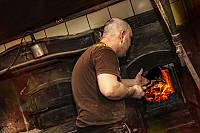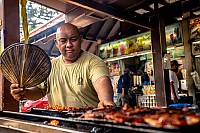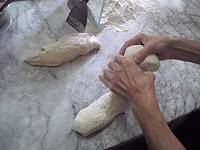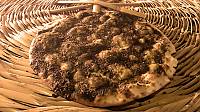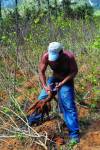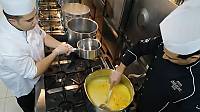
Nsima, culinary tradition of Malawi
Inscribed,Nsima, culinary tradition of Malawi Nsima, the Culinary Tradition of Malawi, is a compound name for the culinary and dietary tradition of Malawians as well as the name of a single component of this tradition, a form of thick porridge prepared with maize flour. Nsima is prepared through an elaborate process requiring specific knowledge, fr... Malawi
Harissa, knowledge, skills and culinary and social practices
inscribed,Harissa, knowledge, skills and culinary and social practices Harissa, a seasoning made with chilli pepper paste, is an integral part of domestic provisions and the daily culinary and food traditions of Tunisian society. It is usually prepared by women in a convivial and festive family or neighbourhood setting. It is prepared by drying the... Tunisia
Il-Ftira, culinary art and culture of flattened sourdough bread in Malta
inscribed,Il-Ftira, culinary art and culture of flattened sourdough bread in Malta Il-Ftira, culinary art and culture of flattened sourdough bread in Malta, is a key part of the cultural heritage of the inhabitants of the Maltese archipelago. Ftira has a thick crust and light internal texture, characterized by large, irregular holes (an open crumb)... Malta
inscribed,Hawker culture in Singapore, community dining and culinary practices in a multicultural urban context Hawker culture in Singapore: community dining and culinary practices in a multicultural urban context is present throughout Singapore. Hawkers prepare a variety of food (‘hawker food’) for people who dine and mingle at hawker centres.... Singapore
Ceebu Jën, a culinary art of Senegal
inscribed,Ceebu Jën, a culinary art of Senegal Ceebu jën is a dish that originated in the fishing communities on the Island of Saint-Louis in Senegal. Although recipes vary from one region to the next, the dish is typically made with fish steak, broken rice, dried fish, mollusc and seasonal vegetables such as onions, parsley, garlic, chilli peppe... Senegal
Art of Neapolitan ‘Pizzaiuolo’
Inscribed,Art of Neapolitan ‘Pizzaiuolo’ The art of the Neapolitan ‘Pizzaiuolo’ is a culinary practice comprising four different phases relating to the preparation of the dough and its baking in a wood-fired oven, involving a rotatory movement by the baker. The element originates in Naples, the capital of the Campania Region, where about 3,... Italy
Al-Man’ouché, an emblematic culinary practice in Lebanon
inscribed,Al-Man’ouché, an emblematic culinary practice in Lebanon The quintessential Lebanese breakfast, Al-Man’ouché is a flatbread prepared in homes and specialized bakeries, and enjoyed by people of all backgrounds. The dough is indented using the fingertips and topped with a mixture of thyme, sumac, toasted sesame seeds, salt and olive o... Lebanon
Traditional knowledge and practices for the making and consumption of cassava bread
nsmitted informally, within households and communities. They are also transmitted through media and culinary institutes. In most countries, cassava bread is a key part of daily diets and provides a connection with the communities’ Indigenous and African heritage. It promotes tolerance and unity, as each community values its own cassava bread maki... Cuba
, Haiti
, Honduras
and the ecosystem. There are also numerous social practices resulting from the practice as well as culinary and traditional medicine traditions. As in the past, the transmission of the element takes place mainly in tree beekeepers’ families and through the act of brotherhoods. Nowadays, however, workshops offer another mode of transmission durin... Belarus
, Poland
Al-Mansaf in Jordan, a festive banquet and its social and cultural meanings
ecipes and related practices (such as milking the goat or sheep) to their daughters and granddaughters. Culinary institutes and universities also contribute to the dish’s transmission.... Jordan
